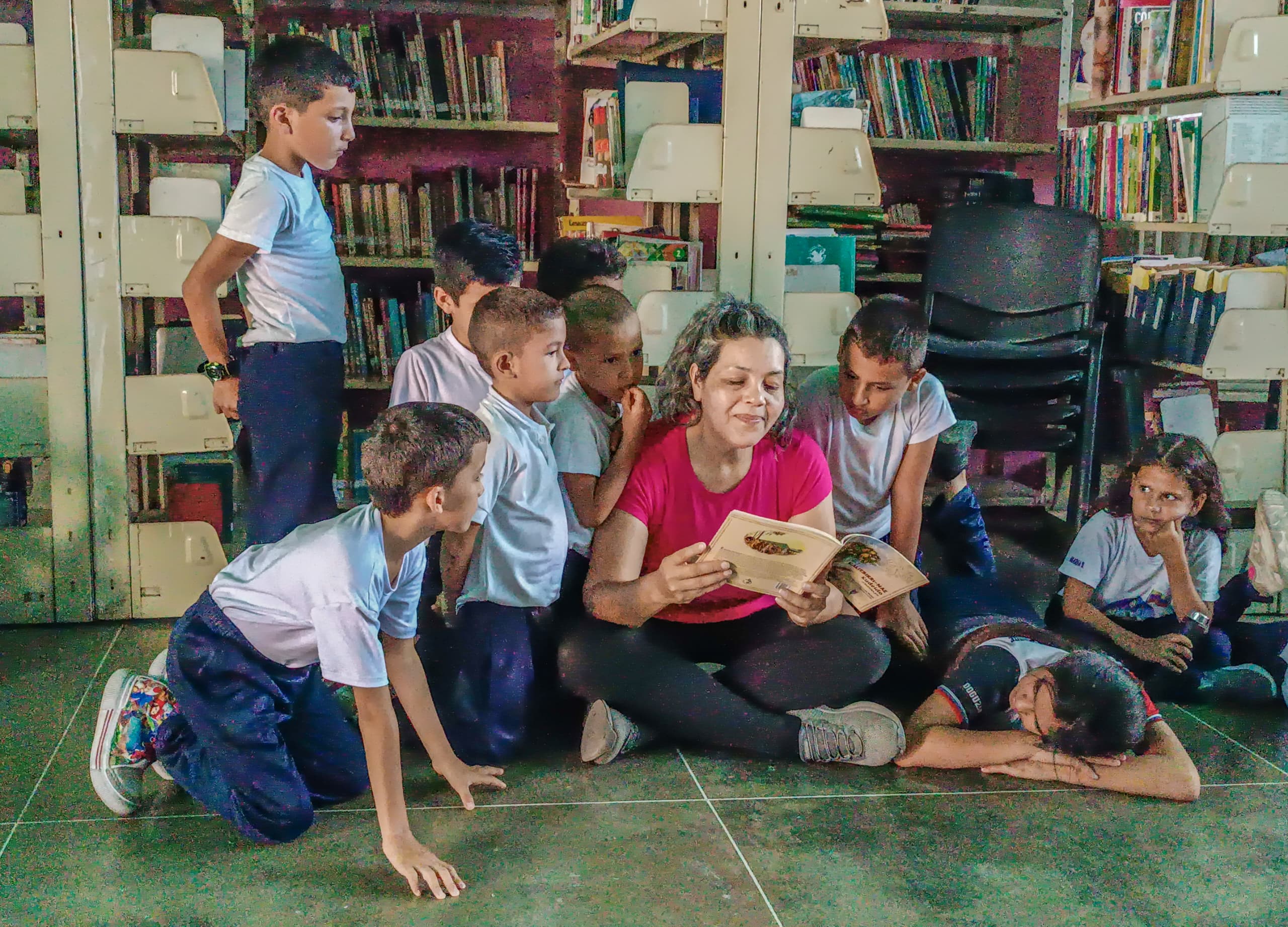
A loving greeting to all my Hive friends, especially to the culture lovers. I have more than 15 years working in the cultural milieu and this has enriched me a lot on a personal and professional level. As many of you who read me already know, I am from Venezuela. And I was delighted to come across this community, since culture has so much to tell us about ourselves and our communities that I will feel very comfortable sharing with all of you.
On this occasion I want to share with you a wonderful experience I had recently, before the year 2024 ended. In the penultimate and last month I embarked on a beautiful literary route, this I did in the company of my dear @aly.squid and the team of the public library of the parish Alberto Adrianí, in the municipality Fernández Feo, Táchira state. The literary route was called Rincón de Letras. And we carried it out in different rural schools of the sector. It was an enriching experience that allowed me to get closer to the children and young people of these communities, and share with them the passion for reading and books.
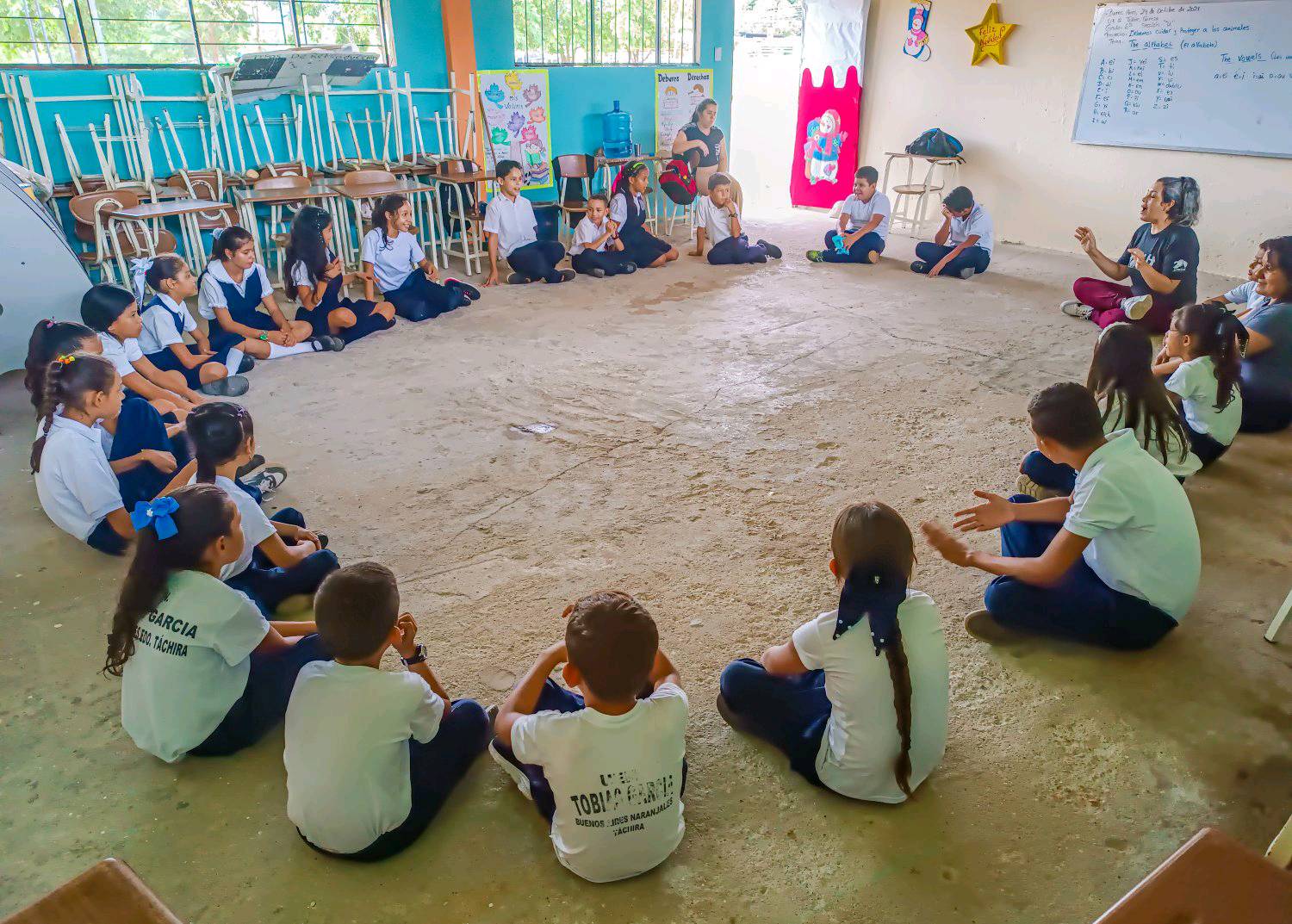
The most interesting thing about these activities is that the reading we shared with the children was from Jivi literature, one of the indigenous communities that still exists and resists in the Venezuelan territory. It was an honor to be able to introduce the students to the culture and literature of this community, and to see how excited they were to discover the beauty of the indigenous cosmovision.
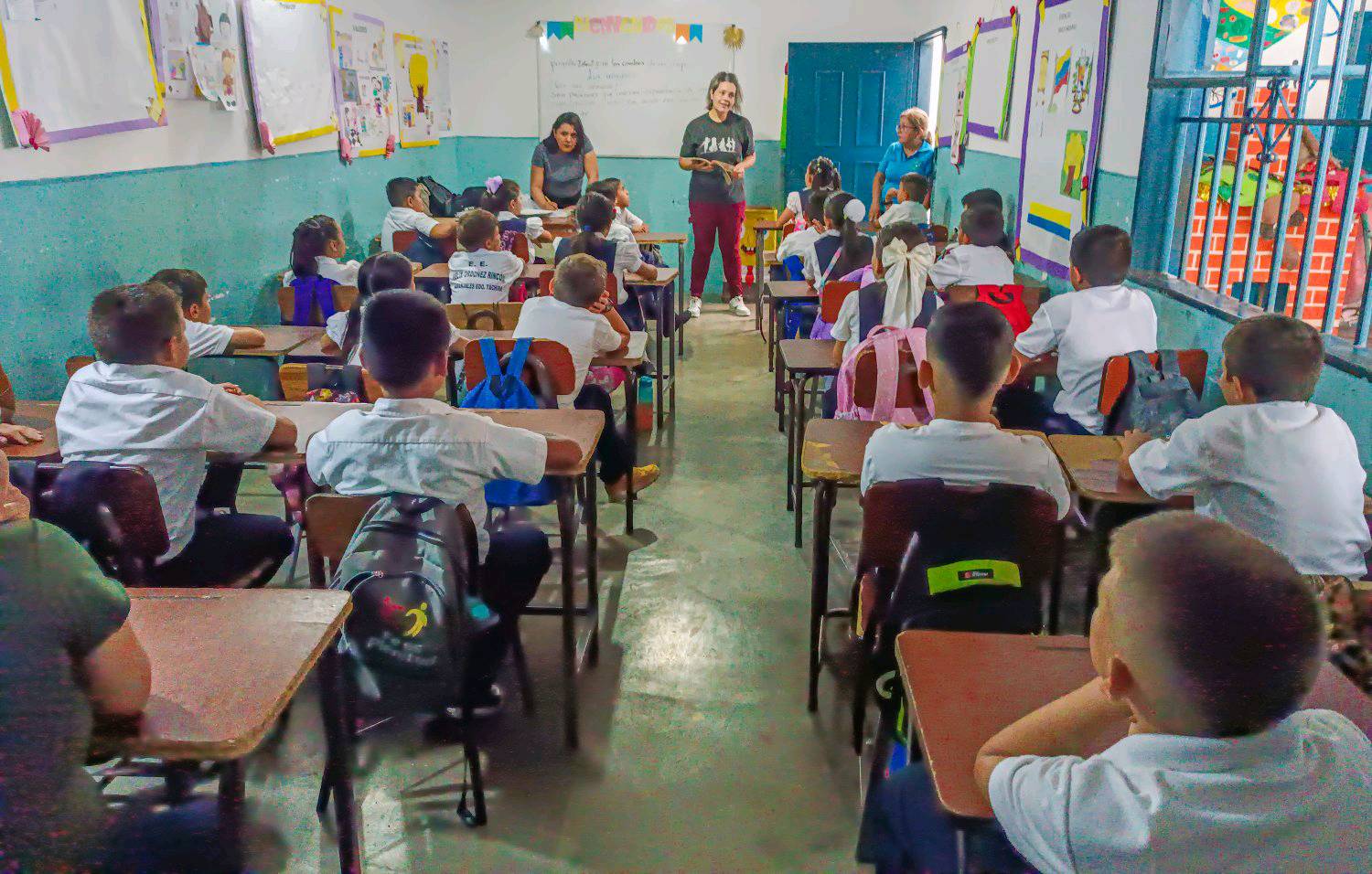
The story with which we did this first phase of the Route, was Kaliebirri-Nae Kudeido, which in Spanish means The Tree of All Fruits. This beautiful story was told by the writer Luis Blanco, who also belongs to the Jivi community and dedicated his life and literary work to make known the imaginary of his people. He was very successful in the latter since his story, published as a book in 1984, was awarded prizes in Venezuela, as well as in Germany and at the children's book fair in Italy a couple of years after its publication.
The cultural greatness of this book is in keeping alive the memory of the origin of Autuna Hill, one of the most sacred mountains for the indigenous peoples of the territory. But it is also a great journey through the indigenous cosmovision, in which the narration draws us a moment in history, where people were not yet people but animals and how there were not all the trees we know now, but only one, huge, that reached the sky and in it were all the fruits and wood of all the trees that are currently distributed throughout the world. After a series of well-told events, the animals accessed the fruits of the Kaliebirri-Nae and distributed their seeds all over the world. For the Jivi humans came from animals, from each animal group different humans emerged.
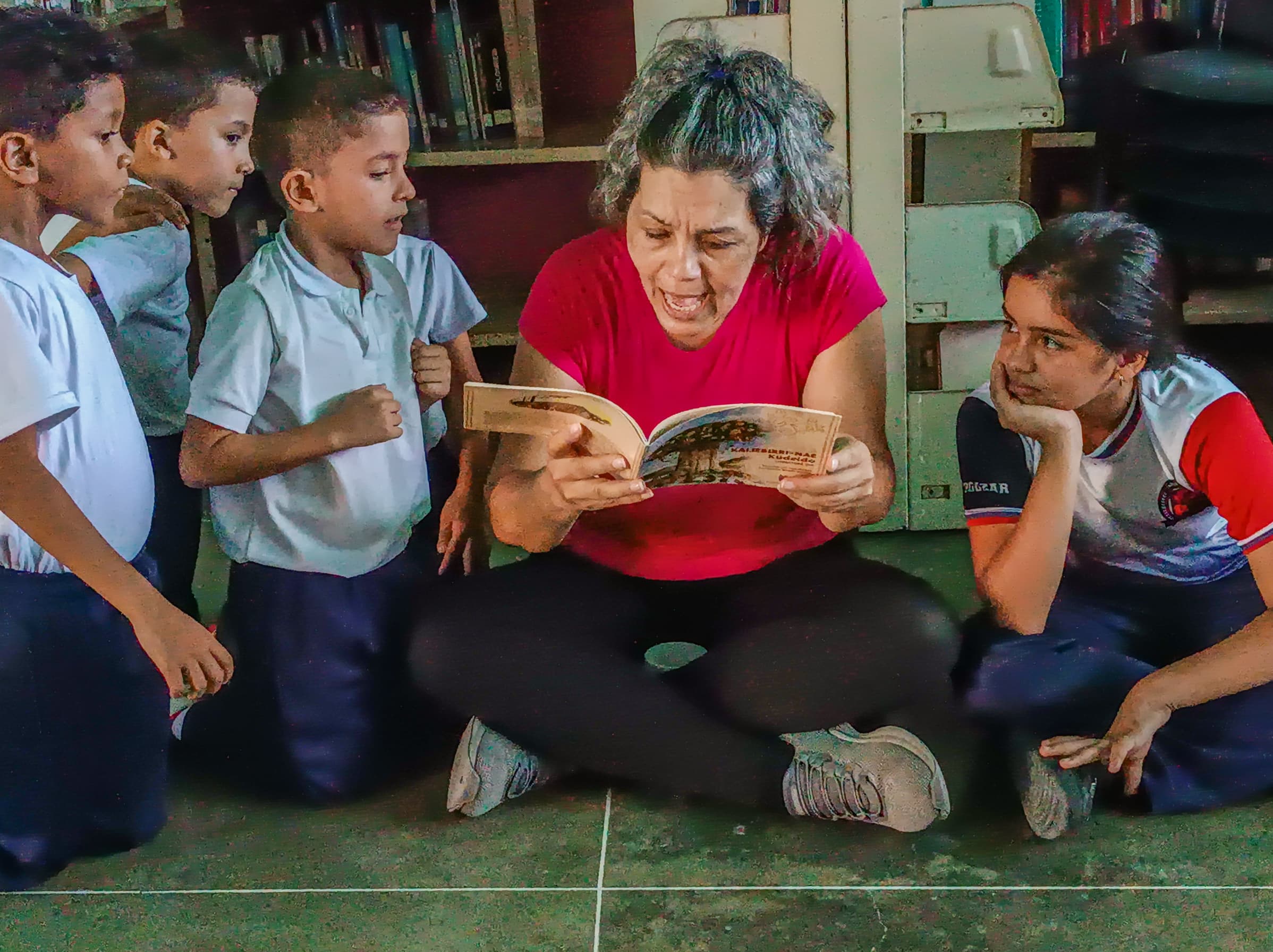
The most beautiful thing about this experience was to see how the children are tremendously receptive and enthusiastic about a story that is part of the indigenous memory of our territory. In fact, the Jivi people are located in different parts of the national territory, since they are nomadic. And one of the territories where they are located is very close to the parish where we conducted the Literary Route. So the children identified themselves very much, since they recognized the names of the animals and fruits, as well as the whole theme of rivers and nature. Since in these communities there are many rivers and the children learn to swim from a very young age and the rivers are part of their imagination.
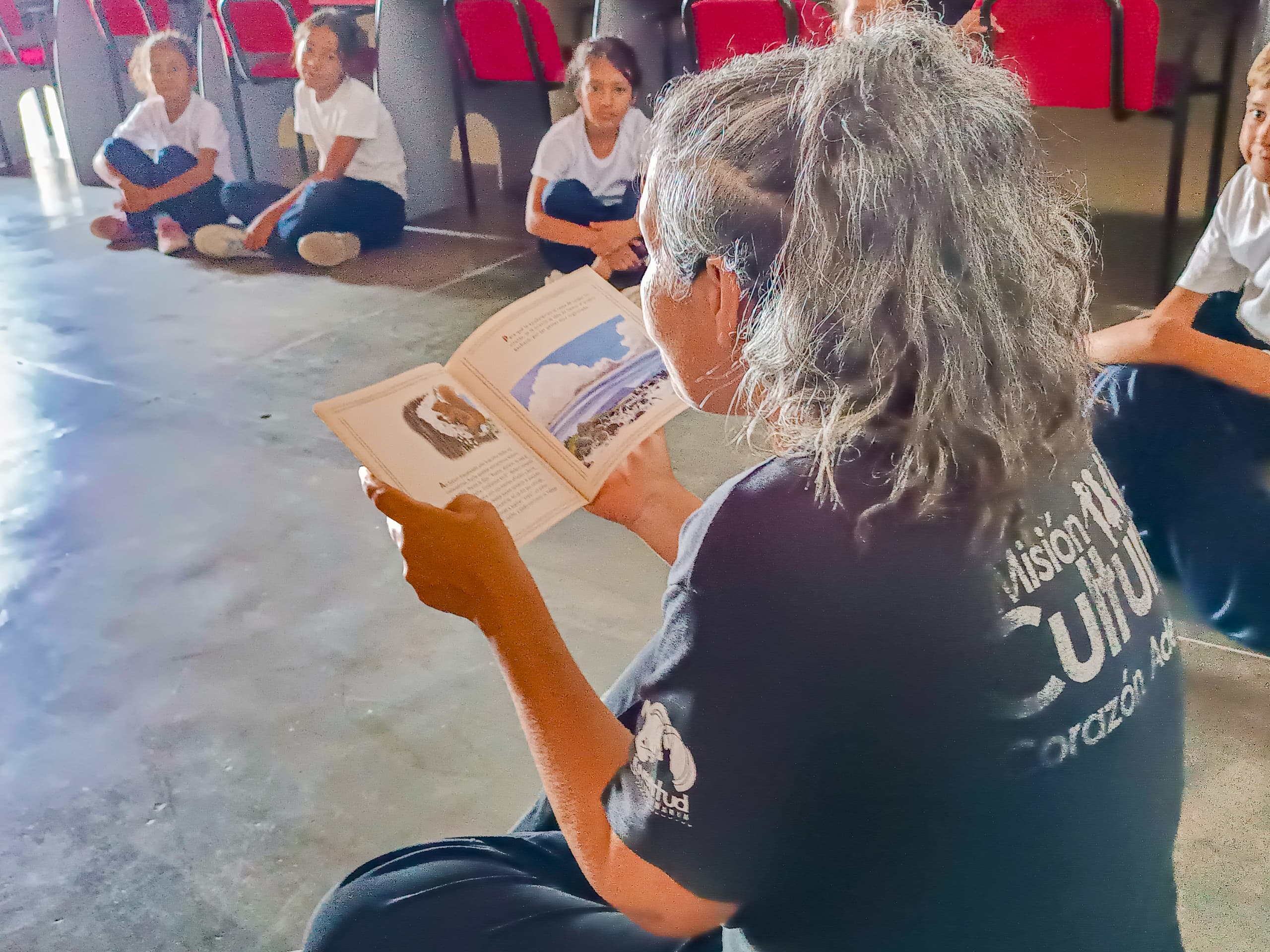
All this made each visit to a new school a unique and special experience. To be able to see the joy on their faces as they immersed themselves in this beautifully written book and participated in creative activities related to reading was truly inspiring.
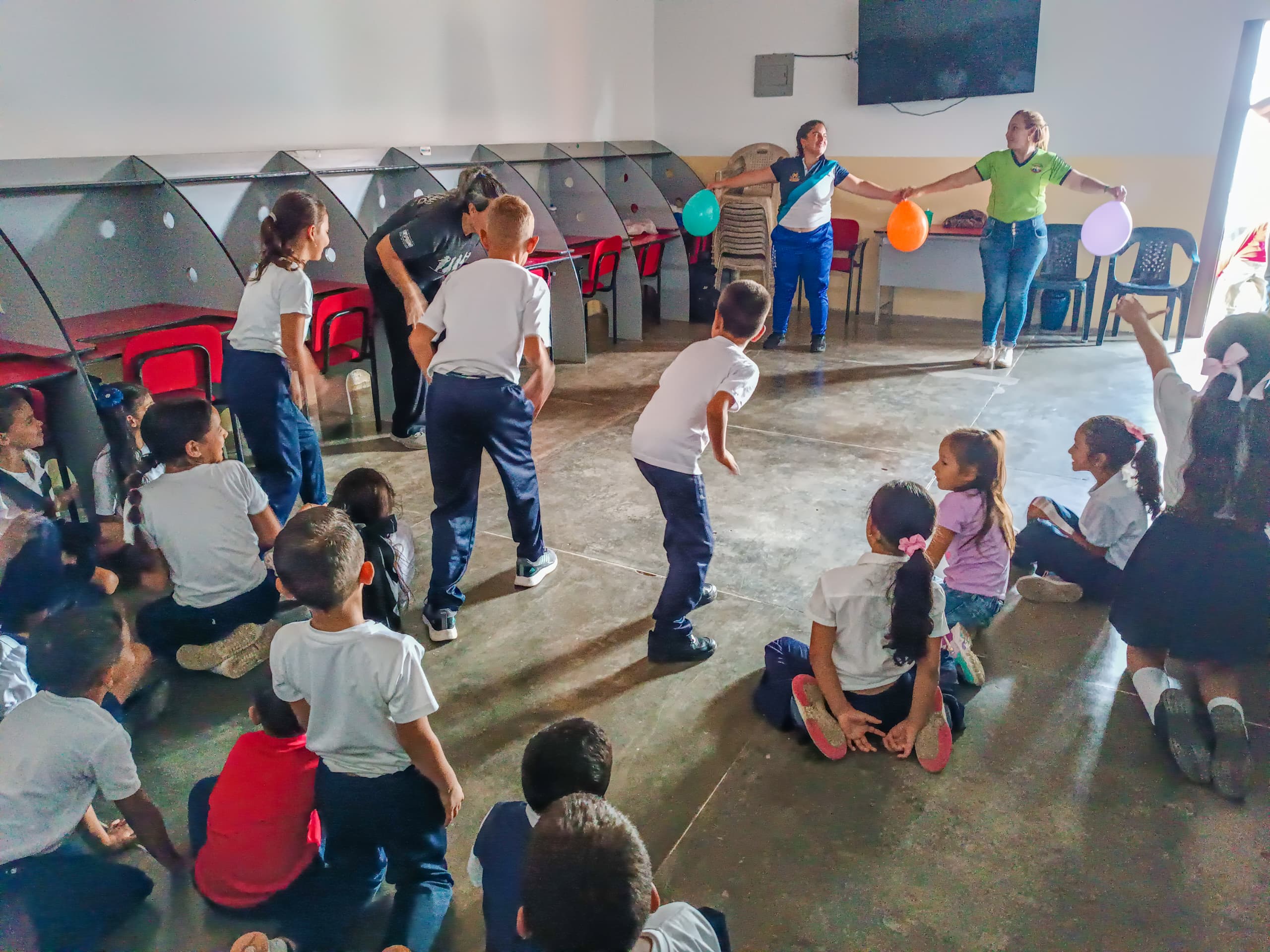
During this literary tour, I noticed the importance of bringing literature to rural communities, where sometimes access to books and educational resources is limited. This is fundamental to encourage the habit of reading from an early age and offer children the opportunity to explore different worlds through books. Also the Jivi literature or any of our indigenous peoples, give us the opportunity to talk about the community feeling and the importance of connecting with nature.
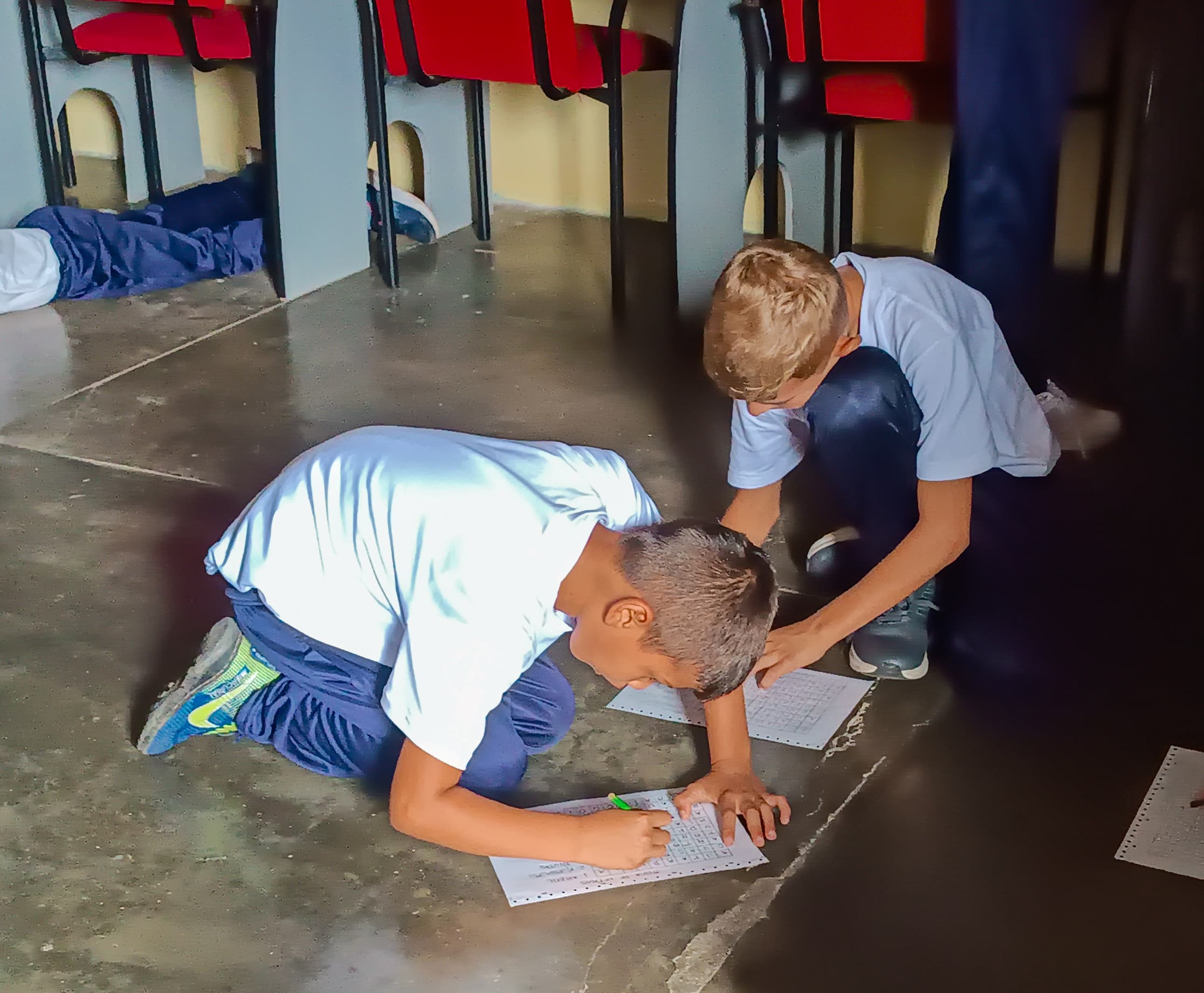
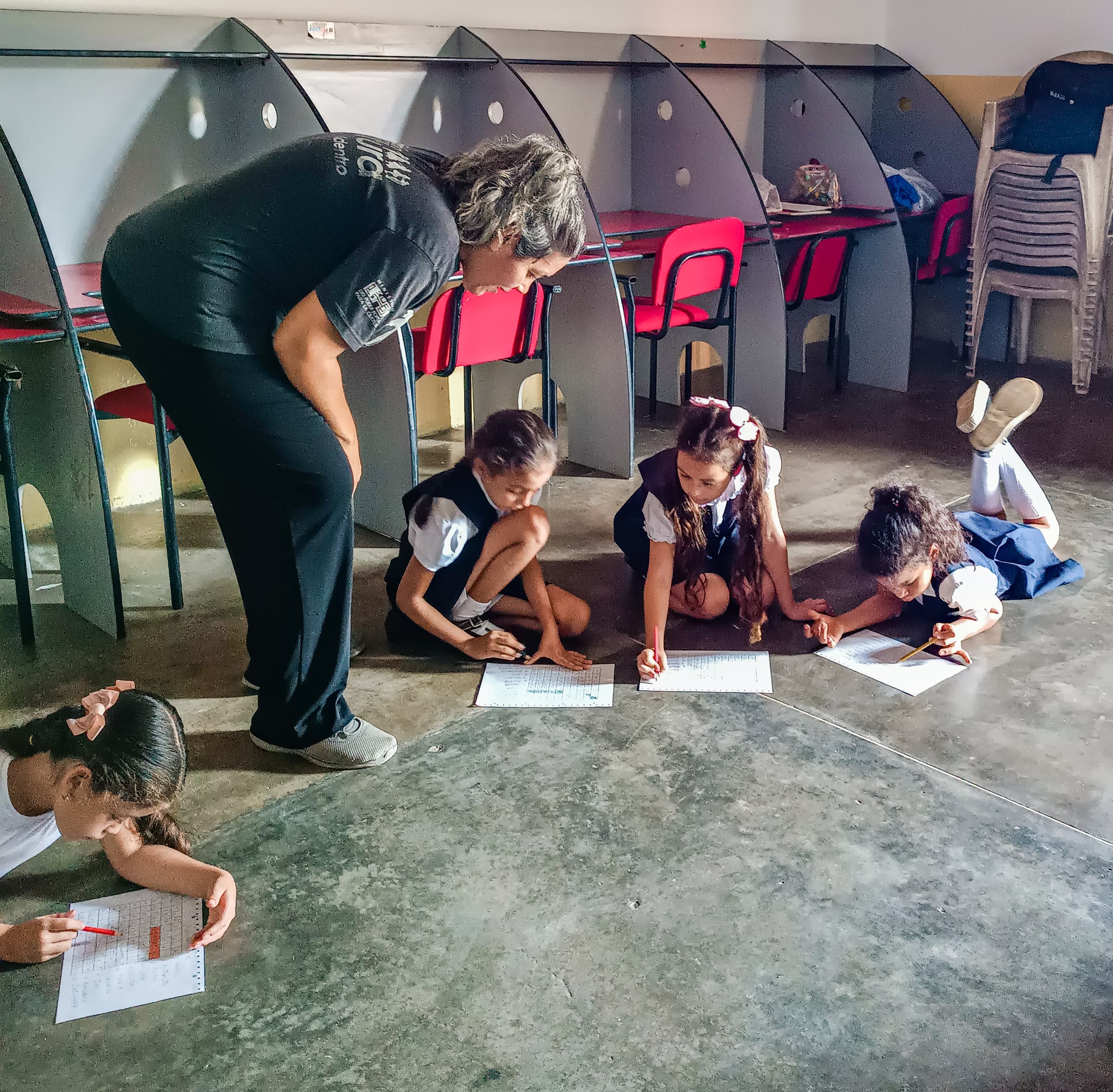
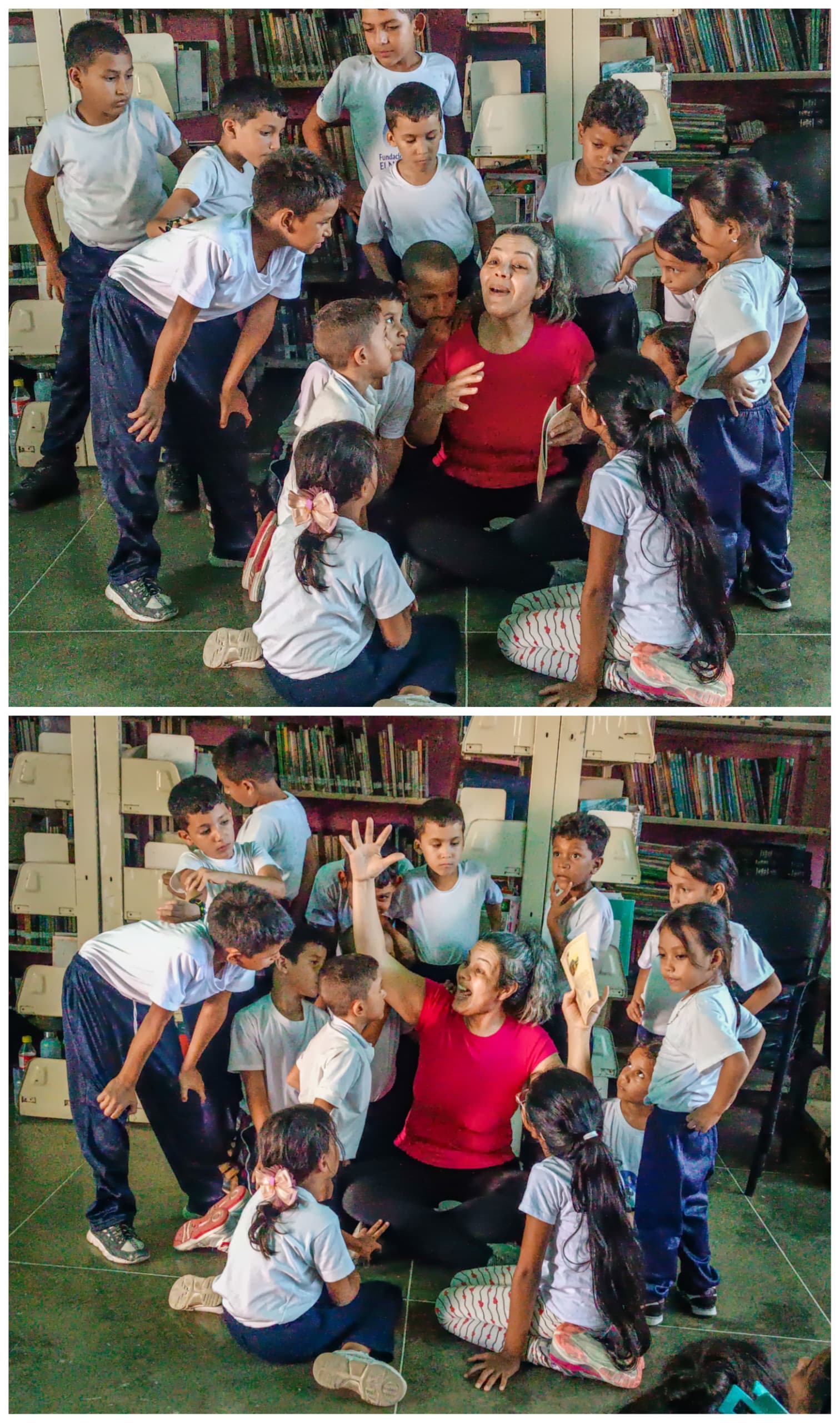
This year 2025, I hope to continue with the project of La Ruta Literaria Roncón de Letras. And to continue throughout the year inspiring more children through indigenous literature. I hope to be able to tell you a little more about future experiences. I say goodbye for now, leaving you with a big hug.
Original content by the author.
Resources: Xiaomi redmi note 11s
Own photos
Translated with Deepl.com
All rights reserved || @jetta.amaya// 2025
Kaliebirri-Nae Kudeido, Literatura indígena y compartir con las infancias (Ingles/Español)

Un saludo amoroso para todos mis amigos de Hive, especialmente para los amantes de la cultura. Tengo más de 15 años trabajando en el medio cultural y esto me ha enriquecido mucho a nivel personal y profesional. Como ya saben muchos de los que me leen, soy de Venezuela. Y me encanto toparme con esta comunidad, ya que la cultura tiene tanto que contarnos acerca de nosotros mismos y de nuestras comunidades que me sentiré muy a gusto compartiendo con todos ustedes.
En esta ocasión les quiero compartir una experiencia maravillosa que tuve recientemente, antes de que el año 2024 terminara. En el penúltimo y último mes me embarque en una bellísima ruta literaria, esto lo hice en compañía de mi querida @aly.squid y el equipo de la biblioteca pública de la parroquia Alberto Adrianí, en el municipio Fernández Feo, estado Táchira. La ruta literaria tenía el nombre de Rincón de Letras. Y la realizamos en diferentes escuelas rurales del sector. Fue una experiencia enriquecedora que me permitió acercarme a los niños y jóvenes de estas comunidades, y compartir con ellos la pasión por la lectura y los libros.

Lo más interesante de estas actividades es que la lectura que compartimos con los niños era de la literatura Jivi, una de las comunidades indígenas que aún existe y resiste en el territorio venezolano. Fue un honor poder introducir a los estudiantes en la cultura y la literatura de esta comunidad, y ver cómo se emocionaban al descubrir la belleza de la cosmovisión indígena.

El cuento con el que hicimos esta primera fase de la Ruta, fue Kaliebirri-Nae Kudeido, que en castellano significa El árbol de todas las frutas. Esta bella historia fue relatada por el escritor Luis Blanco, quien también pertenece a la comunidad Jivi y dedico su vida y trabajo literario a dar a conocer el imaginario de su gente. Tuvo mucho éxito en esto último ya que su relato publicado como libro en el año 1984, llego a ser premiado en Venezuela, así como también en Alemania y en la feria del libro infantil en Italia un par de años después de su publicación.
La grandeza cultural de este libro está en mantener viva la memoria del origen del cerro Autuna, una de las montañas más sagradas para los pueblos indígenas del territorio. Pero también es un grandioso viaje por la cosmovisión indígena, en la que la narración nos dibuja un momento de la historia, donde las personas no éramos aun personas sino animales y como no existían todos los árboles que conocemos ahora, sino uno solo, enorme, que llegaba al cielo y en él se encontraban todas las frutas y la madera de todos los árboles que en la actualidad se encuentran distribuidas por el mundo. Tras una serie de eventos muy bien relatados, los animales accedieron a las frutas del Kaliebirri-Nae y distribuyeron sus semillas por todo el mundo. Para los Jivi los humanos venimos de los animales, de cada grupo animal surgieron diferentes humanos.

Lo más hermoso de esta experiencia fue ver como los niños son tremendamente receptivos y entusiastas con una historia que forma parte de la memoria indígena de nuestro territorio. De hecho, el pueblo Jivi está ubicado en diferentes partes del territorio nacional, ya que son nómadas. Y uno de los territorios en los que se ubican está muy cerca de la parroquia en la que realizamos la Ruta Literaria. Por lo que los niños se identificaron mucho, ya que reconocían los nombres de los animales y de las frutas, así como de todo el tema de los ríos y la naturaleza. Ya que en estas comunidades hay muchos ríos y los niños desde muy chicos aprenden a nadar y los ríos forman parte de su imaginario.

Todo esto hizo que cada visita a una nueva escuela fuera una experiencia única y especial. Poder ver la alegría en sus rostros al sumergirse en este bellísimo libro y al participar en actividades creativas relacionadas con la lectura fue realmente inspirador.

Durante esta ruta literaria, pude notar la importancia de llevar la literatura a comunidades rurales, donde a veces el acceso a libros y recursos educativos es limitado. Esto es fundamental para fomentar el hábito de la lectura desde una edad temprana y ofrecer a los niños la oportunidad de explorar diferentes mundos a través de los libros. También la literatura Jivi o de cualquiera de nuestros pueblos indígenas, nos brindan la ocasión idónea para hablar del sentir comunitario y la importancia de conectar con la naturaleza.



Este año 2025, espero continuar con el proyecto de La Ruta Literaria Roncón de Letras. Y continuar durante todo el año inspirando a más niños a través de la literatura indígena. Espero poder contarles un poco más sobre las experiencias futuras. Me despido por ahora, dejándoles un fuerte abrazo.
Contenido original del autor.
Recursos: Xiaomi redmi note 11s
Fotos propias
Traducido con Deepl.com
Todos los derechos reservados || @jetta.amaya// 2025